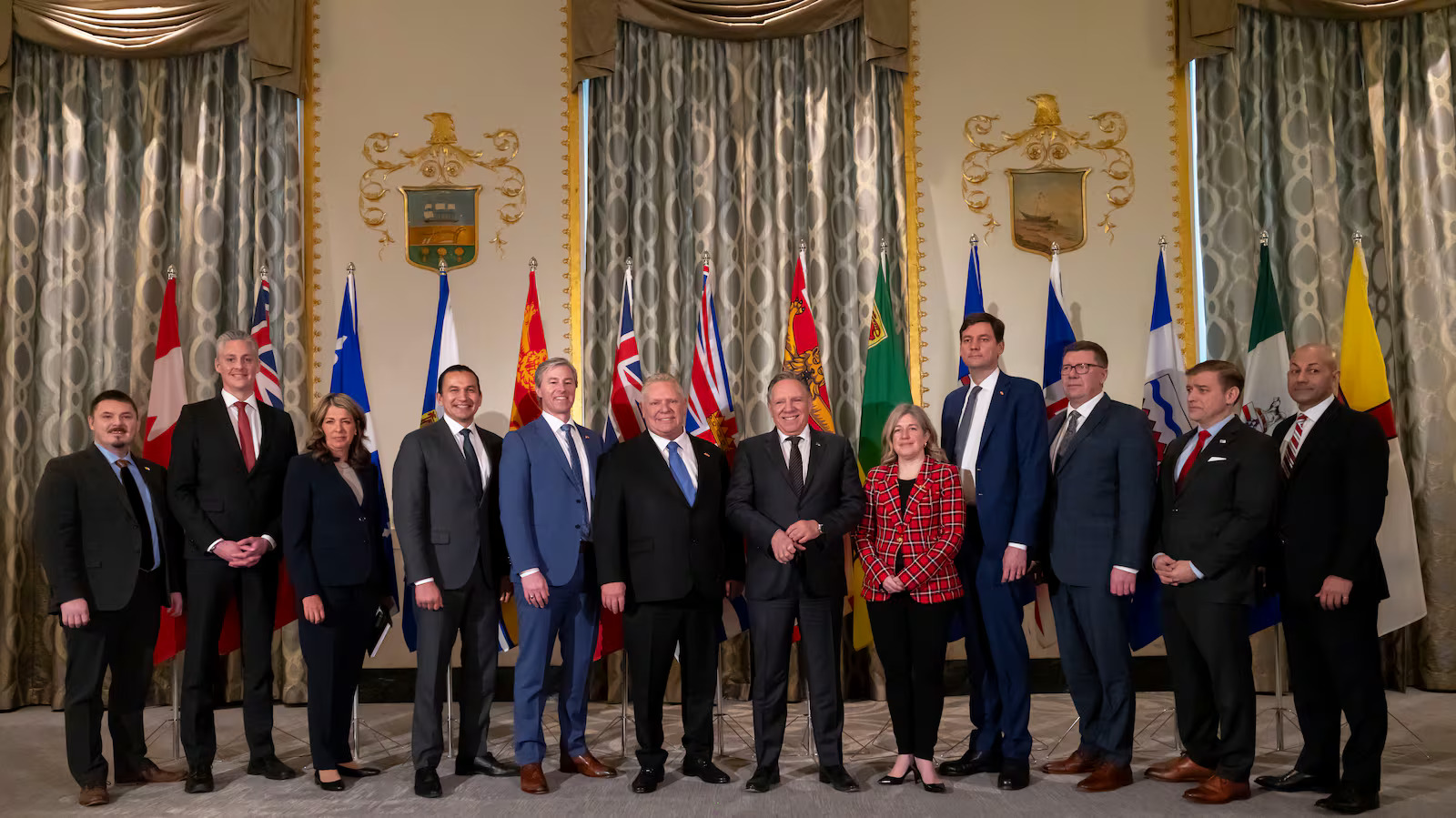Leaders Push Back Against U.S. Trade Barriers Amid Economic Uncertainty
In a significant diplomatic move, Canada’s 13 premiers are meeting at the White House today, aiming to counter U.S. President Donald Trump’s latest round of tariffs, CTV News has learned. This unprecedented gathering underscores the urgency of protecting Canadian industries from severe economic fallout.
While details on who the premiers will be meeting with remain unconfirmed, the presence of Federal Finance Minister Dominic LeBlanc, who is set to hold separate discussions with U.S. Commerce Secretary nominee Howard Lutnick, suggests high-level negotiations are underway.
Trump’s Tariffs: A Growing Concern for Canada
On Monday, Trump signed executive orders imposing a 25% tariff on all steel and aluminum imports, including those from Canada. This new measure is set to take effect on March 12 and is expected to disrupt $20 billion worth of steel trade between the two nations.
Beyond metals, Trump has previously threatened a sweeping 25% tariff on all Canadian and Mexican imports, with a lower 10% tariff on Canadian energy exports. While these broader levies have been temporarily delayed until at least March 4, the threat remains, and Canada’s leaders are pushing to ensure they do not move forward.
The premiers’ meeting at the White House is part of a broader diplomatic effort to convince U.S. policymakers, business leaders, and lawmakers that the tariffs will hurt not just Canada but also American industries that rely on Canadian imports.
Ontario Premier Doug Ford, who has been vocal about the economic risks of Trump’s tariffs, emphasized the importance of maintaining strong cross-border trade.
“Let’s stick together and get the message to President Trump – these tariffs will hurt both our countries,” Ford stated during an earlier meeting with the U.S. Chamber of Commerce.
Premiers from across the country, including François Legault (Québec), David Eby (British Columbia), Danielle Smith (Alberta), and Wab Kinew (Manitoba), have echoed similar concerns, particularly regarding the impact on steel, aluminum, auto manufacturing, and energy exports.
- Steel and Aluminum Industry: Canada’s steel sector, which exports 40% of its products to the U.S., faces massive disruptions.
- Automotive Manufacturing: With Ontario’s auto industry heavily dependent on U.S. trade, tariffs could lead to significant job losses.
- Energy Exports: If the 10% energy tariff moves forward, it could raise costs for both Canadian producers and U.S. consumers.
- Supply Chains: Many Canadian industries are deeply integrated with U.S. supply chains—new tariffs could increase costs for both nations.
As Canada’s premiers meet with White House officials, the goal will be to highlight the economic risks of Trump’s tariffs and push for a mutually beneficial trade arrangement. With the March 4 and March 12 deadlines approaching, these discussions could shape the future of Canada-U.S. trade relations in Trump’s second term.
This is a developing story—more details to follow.

